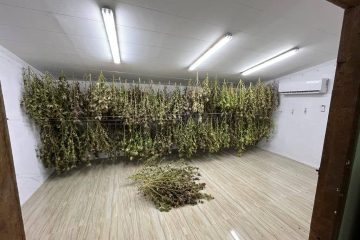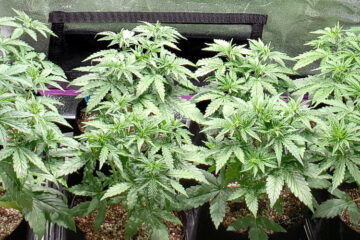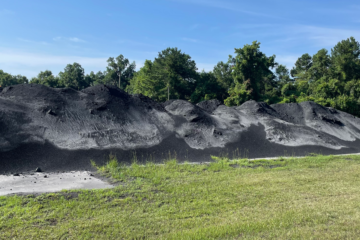Thailand has a long and strong history with cannabis, from traditional medicine to the high-class black markets. The herb was legal up until the 1930s and widely used in traditional Thai medicine. Unfortunately, due to international pressure, Thailand started a process of drug prohibitions and introduced some of its first anti-drug laws.
Now, almost 90 years later, weed is once again legal in Thailand, but for medicinal use only. In 2019, the Thailand Narcotics Act was amended to allow the use of cannabis for medical and research purposes. This step made Thailand the key player in the region, when it comes to marijuana, as other surrounding countries started their legislation’s.
In this article, we’ll cover Thailand’s marijuana legalization, laws, and guidelines as of 2020.
Legalization
Cannabis laws are changing around the world, with more and more countries legalizing weed. Thailand, a country with traditional connections with cannabis, decided to follow, and make marijuana legal again. Despite the deep connection that Thai traditional medicine has with cannabis, the government just recently recognize the medical benefits of weed. As such, they legalized medical-use marijuana, allowing citizens to apply for cannabis treatments.
Moreover, they also permitted the use of cannabis in research purposes, as well as the cultivation and processing of the plant. Unfortunately, the cannabis industry in Thailand still lacks regulatory specifications, though many are being defined at the moment of writing this article. So how exactly is weed legal in Thailand?
Though the legalization spiked recreational use of cannabis, such use is thill considered illegal. Possession and use of the herb are only permitted, provided you have the appropriate license or a doctor’s prescription. For now, only a few government sectors have access to the plant, as well as medical patients, agriculturalists, and other people granted official permission.
Recreational use and unlicensed possession may result in imprisonment and other steep penalties. Since cannabis became legal for medical use, the number of illegal recreational users skyrocketed, due to the easier access to the plant. “Medicinal cannabis products, though officially available to prescribed patents only, became readily available to everyone, including teenagers”, noted Jony Hardy from MedSignals.
Supply and Demand
If we neglect the recreational use and focus on medical aspects only, things aren’t as bright as they seem. Only three months before cannabis became officially legal, more the 30,000 people applied for cannabis therapy. And more than a million patients are showing the most severe, but treatable conditions.
Sadly, the lack of regulatory specifications led to a poor formation of suitable supply infrastructure, and with high demand, Thailand faces a shortage of cannabis. Only 18 cultivation licenses were issued out up until February 2020, because of somewhat harsh regulations by the government. However, the Thai government already drafted amendments to current laws and regulations, attempting to promote marijuana as an economic crop.
There are two main points of these amendments, with the first one allowing patients with a certificate for medical use to home-grow their own medical cannabis. This would also help the government to combat the supply issues by allowing Thai citizens to cultivate up to 6 herbs per household. However, each grower would have to register and obtain a permit from the government and grow only government-approved strains.
The other key point would permit the farmers to grow marijuana as a raw material for medical cannabis as a part of a strictly controlled contract farming system. Each farmer applying for a permit would have to provide a signed contract with the hospital, or a licensed medical practitioner he would sell his products to. The government would also buy out their harvest, at a current estimated price of $1000 per pound, or $2200 per kilo.
Home growing would effectively solve the issue of supply, turning Thailand into the largest manufacturer of medical marijuana in Southeast Asia. Thanks to the high demands for cannabis in traditional Thai medicine and medical and wellness tourism, the pharmaceutical market income would generate an additional $311 million.
Import, Export, and Tourism
Thailand is the world’s third most-visited country when it comes to medical and wellness tourism. And with the newly instated legalization of medical cannabis, the will to promote medical cannabis tourism became apparent. This might be the leading cause for law and regulation amendments that loosen up the regulations and allow growing.
However, the country’s most immediate business opportunities lie within wellness tourism. Legalization would allow wellness centers in Thailand to cultivate and process cannabis, and offer cannabinol cosmetic and wellness treatments, further encouraging domestic and foreign investments.
For the time being, the Thai government is being careful when issuing licenses and permits to private sectors, making sure that they benefit the Thai public. In other words, the private sector has to be of Thai nationality and have a place of residence in Thailand, if it’s a person. If it’s a juristic person, it must be registered in Thailand, with two-thirds of its directors, partners, and shareholders being Thai nationals.
Import and export of cannabis products aren’t currently permitted, with few exceptions. The government-approved growers can import cannabis seeds from the Netherlands, and tourists can import their own medical supply of cannabis. Tourists on a cannabis therapy need to apply for permission to import, providing their medical prescription.
Thailand isn’t exporting any weed or cannabis-related products at the time, due to the current shortage in supply. However, several countries in the region expressed their interest in high-quality medial cannabis, once Thailand starts exporting their cannabis products.
Conclusion
Thailand’s cannabis industry, market, tourism, and the overall economy is looking at a high and bright future. However, things are moving at a slower rate, thanks to the painfully slow process of changing the laws, rules, and regulations regarding cannabis. For now, medical use is legal, provided a government-licensed doctor prescribes it.
At the time of writing, recreational use is still illegal in Thailand, with no clear indication of its reconsideration by the authorities. But if we’re looking to the world, legal recreational use in Thailand isn’t the matter of “if,” but “when.”



0 Comments